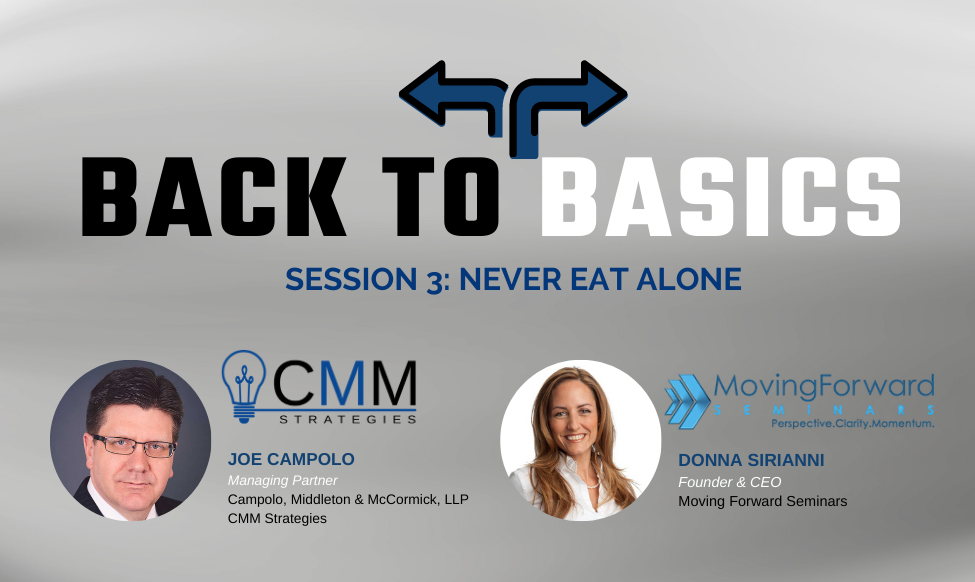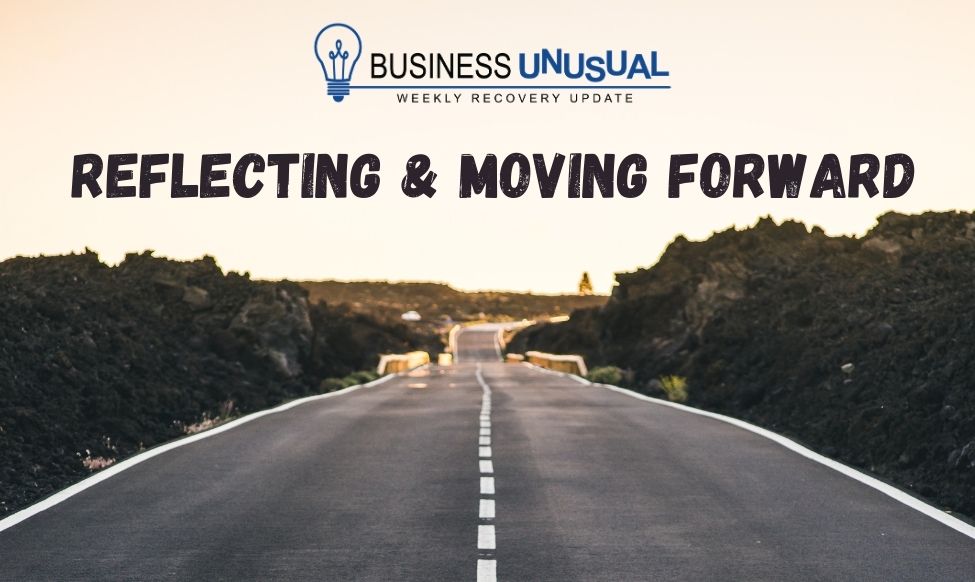In 2020, the court system has faced unprecedented challenges from the pandemic and associated budget cuts. Business disputes, however, continue on – and with would-be litigants facing uncertain waits in the court system for their most pressing issues, Alternative Dispute Resolution (ADR) has taken on new importance.
We sat down (virtually) with Jim Wrynn, Chief Commercial Officer and a Hearing Officer at NAM (National Arbitration and Mediation), to discuss ADR, how NAM has filled a critical void left by the pandemic, and how his unique background informs his approach to cases. Read the Q&A to learn more.
Q: How do you explain ADR to non-lawyers?
Alternative Dispute Resolution (ADR) is any method for settling disputes without litigation. It is an alternative to the court system and is increasingly being utilized in disputes that would otherwise result in litigation, including commercial/business transactions, labor and employment matters, insurance disputes, matrimonial actions, and personal injury claims. Arbitration and Mediation are two of the most common forms.
- Mediation is a private, collaborative process whereby the Mediator (a neutral third person) works with the parties to come to a mutually agreeable resolution.
- Arbitration is like an informal trial where one or more persons (the “arbitrator,” “arbiter,” or “arbitral/arbitration tribunal”) hears evidence and arguments from each side of the dispute and issues an arbitration award which is legally binding and enforceable by the courts.
A major benefit of ADR is that the process is flexible – parties have the freedom to choose their own Arbitrator/Mediator with the requisite subject matter experience and can choose the procedural and discovery rules that may apply to their dispute. The procedure is much quicker than litigation, is significantly less expensive, is confidential, allows all parties to be heard, and is more likely to preserve existing relationships (business and/or social).
Q: When might ADR be a good choice for a particular dispute?
When:
- liability is apparent, but the parties cannot agree on damages;
- there are coverage issues that must be resolved;
- the parties cannot agree upon apportionment of damages;
- privacy/confidentiality is an issue;
- litigating would incur significant time and expense;
- the parties are concerned with preserving their existing relationship; or
- when the parties must because the agreement requires it.
Q: The pandemic has severely limited court operations, and the recent announcement of a judicial hiring freeze suggests that these limitations will not be fully resolved for some time. How has NAM filled the void?
For almost 30 years, we have seen a significant increase in the use of ADR as opposed to formal court proceedings. Recent months have seen this shift rapidly accelerate due to the unprecedented impact of the pandemic. Accelerating even faster is the use of remote (or virtual) videoconferencing that enable the parties and counsel to proceed with Mediation/Arbitration in a way that protects them from the virus.
NAM has been way ahead of the curve in its ability to integrate technology and case conferencing. We have been conducting hearings and conferences via videoconferencing for over 25 years. Since mid-March alone, NAM has successfully conducted thousands of hearings remotely without any technological or security issues.
Q: How does virtual mediation compare to in-person mediation? Do you think in-person will resume post-COVID or is virtual mediation a satisfactory substitute?
Frankly, the conversion from mostly in-person to virtual hearings has been seamless for us, and the parties and counsel are finding it quicker and more cost-effective. For example,
- clients do not have to pay the cost (time and expense) of the attorney, witness and/or party travel expenses;
- the hearing itself is more efficient (it starts as soon as you log on – no more waiting for parties/witnesses to arrive and everyone present in the room to begin) and the parties lose minimal time from their respective businesses/professions (not having to travel); and
- parties don’t have to worry about many hurdles that can lengthen or delay settlement (bad weather, traffic delays, flight cancellations, poor health, etc.)
In addition, the Mediator/Arbitrator can speak to all parties and counsel together or separate them into break-out rooms. We are also finding that there is much more eye contact with the parties and counsel virtually, where faces are very visible on the screen, than there would be if all were present in the same room sitting around a large conference room table.
Participants are now familiar and comfortable with Virtual ADR and the benefits it provides, but time will tell as to the degree participants will continue to utilize this format post-Covid.
Q: What sets NAM apart from other ADR services?
First and foremost is the quality of our roster of neutrals. NAM offers a nationwide panel of more than 2,600 top-tier former judges and experienced legal practitioners that are each uniquely qualified to resolve these disputes. NAM has two of the top three neutrals in the U.S. based on the National Law Journal and consistently ranks in the top three of the Corporate Counsel Best of Surveys. Eight of the top 10 mediators and seven of Top 10 arbitrators were NAM neutrals based on the New York Law Best of Survey and others are working their way up the list.
We continue to expand the roster to include even more distinguished neutrals. We recently added the Honorable David B. Saxe of the NYS Appellate Division, First Department, to our panel. Justice Saxe is one of the most honored and respected members of New York’s legal community, and I have no doubt that he will soon be joining many of our other neutrals on these lists in the future.
Another reason is NAM’s superior case administration – we have an experienced team of case managers with the skill set and experience to handle all aspects and nuances involved in the administration of the individual dispute or with a specific ADR program.
Other reasons include: our focus on technology – being at the forefront of videoconferencing over the past 25 years is paramount. We also offer unparalleled flexibility – we have tremendous expertise in the customization and implementation of numerous innovative ADR programs and initiatives. In addition, NAM has constantly demonstrated industry leadership. It has been a true pioneer in the field of ADR and, as a result, has been repeatedly recognized as a leader in the field by the legal community.
Q: Talk about your own background as Superintendent of the NYS Insurance Department and how that experience has shaped your work at NAM.
In addition to my role as Superintendent of the NYS Insurance Department, my background includes more than 35 years of experience as an attorney, regulator, executive, strategic advisor, board member, and expert witness in the insurance field. These experiences have made me somewhat uniquely qualified to serve as both Chief Commercial Officer (where I help develop NAM’s overall strategic policy), and as a Hearing Officer (primarily in the Insurance/Reinsurance field).
For the first 25 years of my career, I was a trial attorney and, coincidently, handled many mediations and arbitrations with NAM, so I am familiar with them as both a client and an executive. Since that time, I have been involved with thousands of claims from a number of different viewpoints in my various roles with the NYS Insurance Fund, the NYS Department of Insurance, and the NYS Department of Financial Services, and as a regulatory attorney, expert witness, and strategic advisor.
As a result, I do not approach the dispute from only one vantage point, as many neutrals do, but I understand the perspective of all parties, their counsel, the impacted business owners, the insurance carrier, and even the regulator, since I have worn hats in each of these capacities.
Learn more about NAM here.
CMM attorneys have helped countless clients reach successful resolutions through both litigation and ADR. Contact us today to discuss the best path forward for your employment, business divorce, personal injury, or other disputes.








